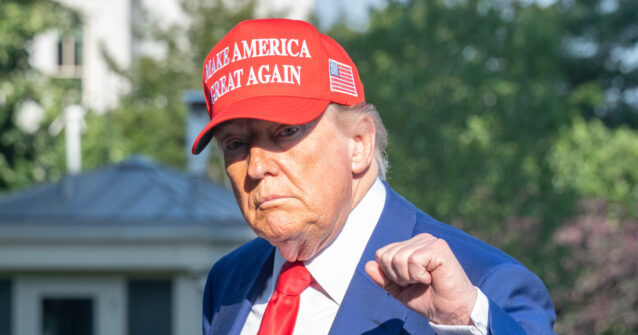President Donald Trump on Monday called on oil producers to keep prices in check following U.S. airstrikes on Iranian nuclear facilities over the weekend, warning that a spike in energy costs would strengthen America’s enemies.
“EVERYONE, KEEP OIL PRICES DOWN. I’M WATCHING! YOU’RE PLAYING RIGHT INTO THE HANDS OF THE ENEMY. DON’T DO IT!,” the president posted on his Truth Social platform Monday morning.
Oil futures eased in the wake of the post. Both Brent Crude, the global benchmark, and West Texas Intermediate, the most watched U.S. oil price, fell by around one percent.
While the president did not specify a target audience, the message appeared directed at the domestic oil industry. Some U.S. producers have recently warned of potential output cuts due to softening prices and growing global supply, particularly as OPEC+ has moved to restore production quotas.
In a follow-up post, Trump wrote: “To The Department of Energy: DRILL, BABY, DRILL!!! And I mean NOW!!!” Oil production in the United States, however, is controlled by private companies and shaped by market conditions, not directed by the Energy Department.
Despite the heightened geopolitical tensions, oil prices have traded with relative stability since the strikes. Brent surged more than 5 percent on Sunday evening in the initial reaction to the attacks—briefly crossing $81 per barrel—before easing back. WTI also climbed to its highest level since January before retreating.
The U.S. military targeted three key Iranian nuclear sites—Fordow, Natanz, and Isfahan—over the weekend, marking a significant escalation in the regional conflict. While the strikes sparked fears of potential retaliation and threats to energy infrastructure in the Gulf, markets have so far responded with measured moves, reflecting a wait-and-see posture among traders.
Analysts say the muted market response reflects uncertainty over Iran’s next move and skepticism that oil flows will be seriously disrupted. While Iran’s parliament has called for the closure of the Strait of Hormuz, any such action would require approval from the Supreme National Security Council and Supreme Leader Ayatollah Ali Khamenei.
Read the full article here
